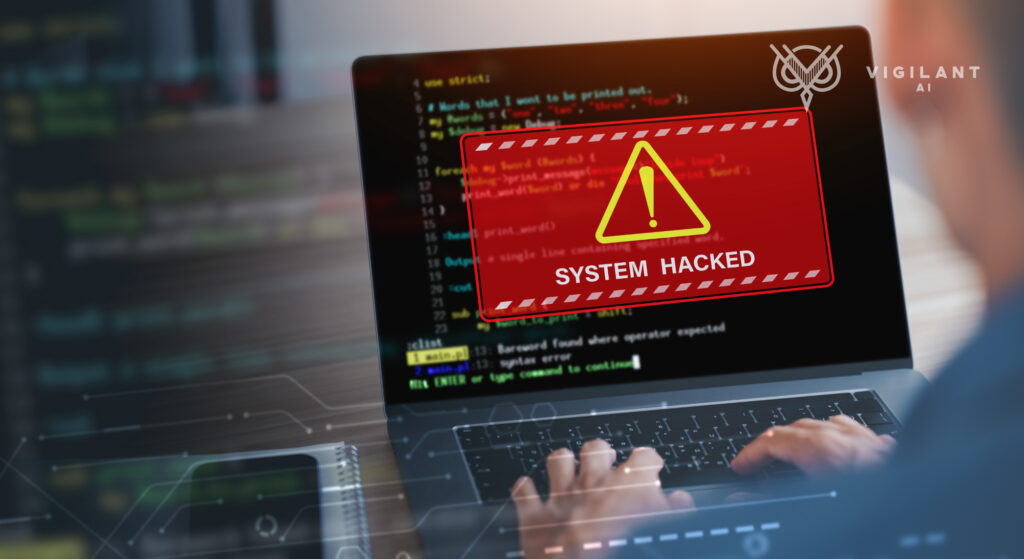Cyber-attacks are a persistent and growing threat to the accounting and auditing industry.
Auditors have always taken steps to secure sensitive financial data. Today, auditors frequently use secure file-sharing software and other tools to send, receive, and access documents securely throughout a client engagement.
However, the consequences of a successful data breach can be severe, with long-lasting and sometimes catastrophic implications for accounting and audit firms of all sizes.
As the reliance on digital data and business process automation increases, auditors must take steps to improve cyber security, mitigate the risk of data breaches, and ensure that only authorized users have access to sensitive information.
Cyber Security Threats In the Audit Industry
In 2023, 68 percent of organizations had suffered at least one cyber-attack within the past 12 months. Common types of attacks included malware, behavioural engineering, and ransomware.
Attackers can use a range of attack vectors to gain access, but the most common are seemingly the most simple. Phishing for login credentials accounted for more than 30 percent of all data breaches.
While the threat of cyber-attacks has become an important concern across all industries, the financial services and accounting sectors are especially vulnerable. Audit firms have access to sensitive client financial data and personally identifiable information (PII) that make them prime targets for hackers looking to disrupt operations, steal valuable information, or demand ransom payments.
A recent report by the International Monetary Fund showed that the financial sector, including accounting and audit firms, was the second most targeted industry behind only the healthcare sector.
Further, the rise of remote work in recent years has placed additional pressure on cyber security and IT professionals as unmonitored home networks and personal devices were suddenly introduced into the corporate environment. According to Accounting Today, there has since been a 300 percent increase in cyber attacks against accounting firms of all sizes.
Download Cyber Security Toolkit for Audit Firms
The Consequences of a Data Breach
A successful cyber-attack that results in a data breach can have severe and long-lasting implications, especially if PII or other sensitive information is involved.
A 2023 IBM report found that the global average cost of a data breach across all industries was US$4.45 million. However, the cost for financial firms was even greater, rising to an average of more than $5.9 million per breach, including the cost of disrupted operations, recovery time and resources, and the loss of existing customers.
Perhaps more importantly, audit firms that suffer a data breach face significant reputational damage that can lead to long-term challenges in attracting new clients.
Beyond the immediate financial costs associated with the breach, audit firms can also face regulatory penalties, fines, and lawsuits, with the type and severity of the penalty varying depending on the region.
In the EU, for example, the General Data Protection Regulation (GDPR) allows for fines of up to €20 million or 4 percent of worldwide turnover, whichever is greater, for failing to adhere to rules governing data protection.
Similarly, in the US, a new Securities and Exchange Commission (SEC) regulation requires registrants to report material cyber security incidents and to provide annual disclosure of cyber security risk management strategy.
Finally, auditors may face lawsuits from affected customers, partners, or employees whose data was compromised, or for breach of contract for failing to protect sensitive information.
Given these risks, it’s no surprise that 69 percent of audit committee members ranked cyber security among their top three priorities, the most among all responses. This demonstrates to auditors the need to ensure cyber security when conducting an audit.
How Vigilant AI Keeps Data Secure During Financial Audits
Vigilant AI’s Intelligent Data Management Platform has been designed from the ground up to securely analyze and store sensitive financial and business process data, mitigating the risk of a data breach before, during, and after the audit.
The platform is built on a zero-trust security architecture and follows a data-centric security model. Two-factor authentication and user or role-based permissions allow only authenticated users to access the files for which they are authorized. Network monitoring provides an auditable trail of anybody who tries to access the server.
Military-grade encryption ensures data remains secure both in transit and at rest. Further, the analytics are orchestrated and performed in an ISO 27001 and Security Organization Control (SOC 2) compliant environment.
By leveraging a secure, cloud-based platform, users can reduce the time and cost of reviewing and analyzing business process documentation while mitigating the risk of data breaches and other cyber attacks.
Maintaining Data Security and Delivering More Complete Audits
The financial industry in general, and the accounting and auditing sectors in particular, are highly attractive targets to hackers and other malicious actors. And as the cost of a data breach continues to grow, data security has become a top priority for auditors.
When comparing solutions, audit firms should consider not just the performance and capabilities but also the security of the platform. Security features such as end-to-end encryption, two-factor authentication, auditable logs, and permission-based access all help mitigate the risk of a data breach.
With the right technologies, auditors can spend less time reviewing data before the audit and more time probing areas of higher risk, allowing them to perform a faster, more complete, and more accurate audit.



Recent Comments